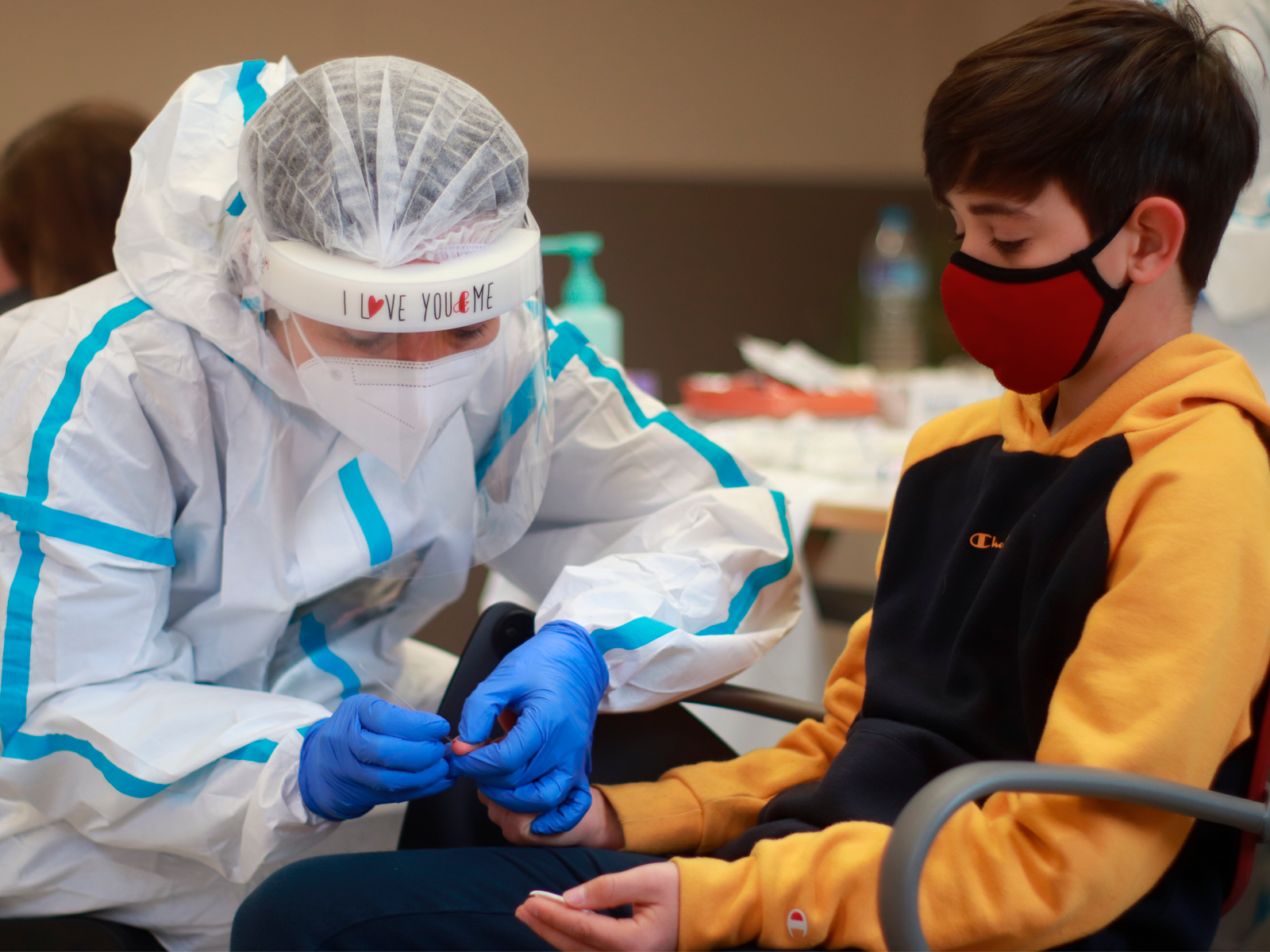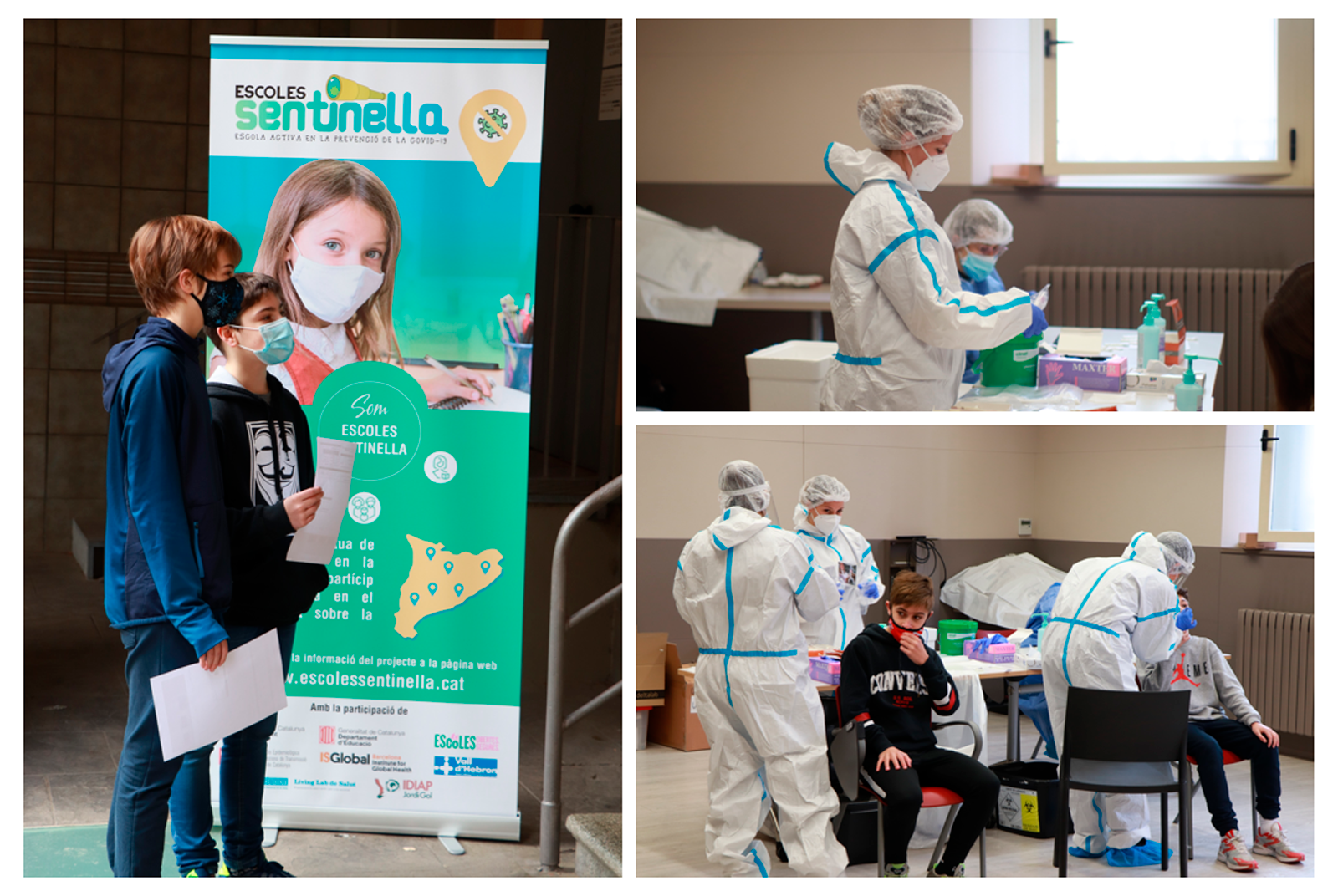The CEEISCAT team coordinate the Sentinel Schools Project in Catalonia

In February the project started on-site in 7 of a total of 26 primary schools and high schools that are taking part in the Sentinel Schools Study. The project is being set up and coordinated by the CEEISCAT, a research group at the IGTP that aims to monitor and evaluate the covid-19 pandemic in schools in Catalonia in order to be able to design health and education policies for the immediate future.
The CEEISCAT team (Centre for Epidemiological Studies of Sexually Transmitted Disease and AIDS in Catalonia) coordinates the Sentinel Schools Project, proposed by the Ministry of Health and the Ministry of Education of the Government of Catalonia. In February the fieldwork has started in the schools, but the team led by Dr Jordi Casabona has been working to coordinate all the groups of people involved in the study for months. The Institute of Global Health Barcelona (ISGlobal), Living Lab of the IRSICAIXA Aids Research Institute, the Vall d'Hebron University Hospital and the IDIAP Jordi Gol Foundation are all collaborating on the project. The microbiology Services of the Germans Trias i Pujol University Hospital, the Vall d'Hebron University Hospital and the Sant Joan de Déu Hospital are also participating.
The main object is to monitor and evaluate the covid-19 pandemic in schools throughout Catalonia, through the study of sentinel schools that represent the organizational, structural and epidemiological diversity of the territory, in order to design useful health and educational policies for prevention and control of the pandemic. "We want to know the staff and pupils' level of exposure to the virus and to understand the knowledge, attitudes and behaviour of families in relation to covid-19 so we can design policies to enable us to prevent and control the transmission of the virus in this area," explains Dr Casabona. "We have started with the baseline samples from the first educational centres in the project, which we will give rapid tests for antibodies and a PCR test with a nasal swab," he adds. There are currently 7 schools which have started the work packages and schools will join in the coming months until the full 26 centres is reached. After Easter the fortnightly follow-up of students over twelve and school staff will start with rapid antigen tests, PCR tests and saliva samples.
Sentinel populations allow us to monitor behaviour in the situations we are living in and to provide high quality epidemiological information that makes it possible to act quickly when faced with outbreaks or situations that require public health measures. This project will determine whether educational centres are a good sentinel population that will allow us to improve control of the pandemic in the educational context, but also at population level, by obtaining information continually from the centres participating in the project.

Evaluation of environmental conditions
With the collaboration their directors, the study will also evaluate the structural and environmental conditions of the schools to investigate the factors that might influence transmissibility of the virus. In this case the students and teachers will become co-researchers in the project through activities both inside and outside the classroom. These actions will be repeated throughout the school year to evaluate the results over time. "This will allow us to make a global approximation of the covid-19 situation in schools so we can make informed decisions to manage the epidemic," points out Casabona. The data collected from this study will serve as a base for the design of public health measures so we can prevent and control transmission of the virus so that schools can be safe places free of covid-19.
